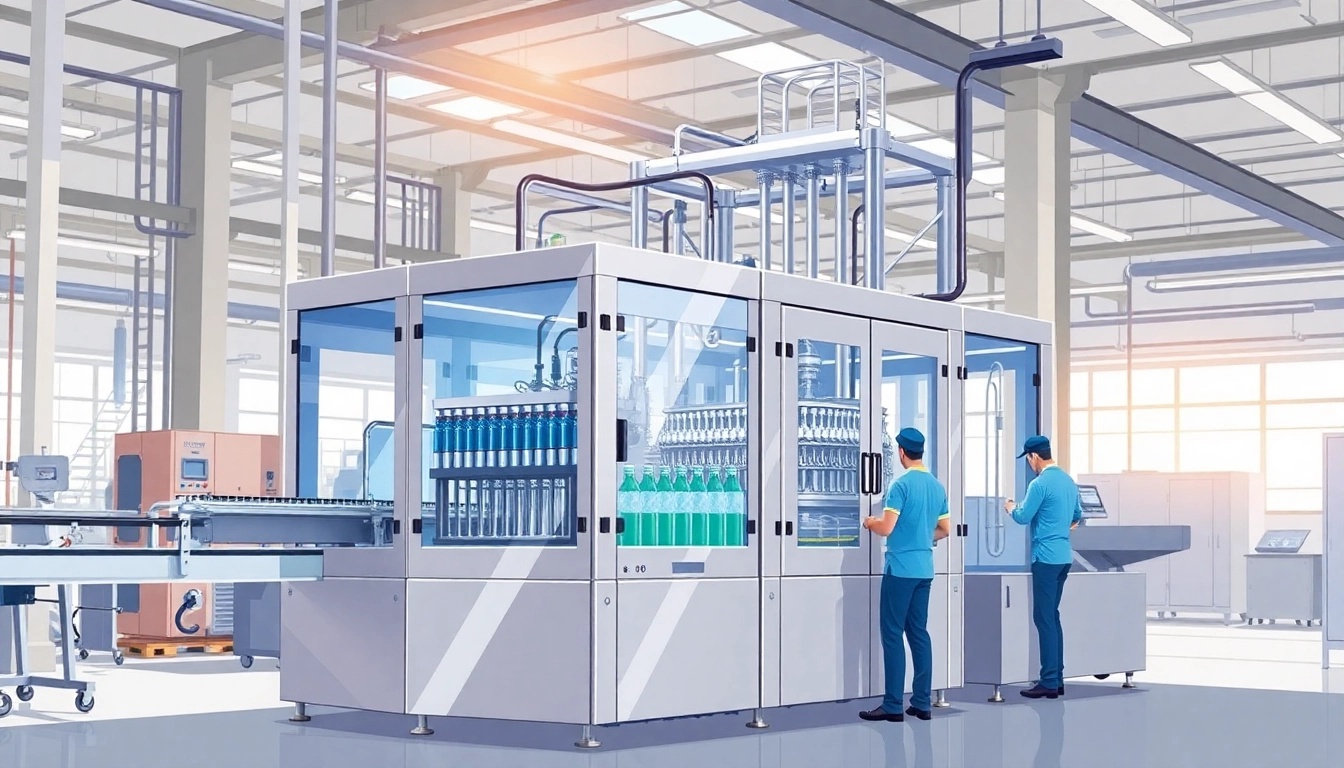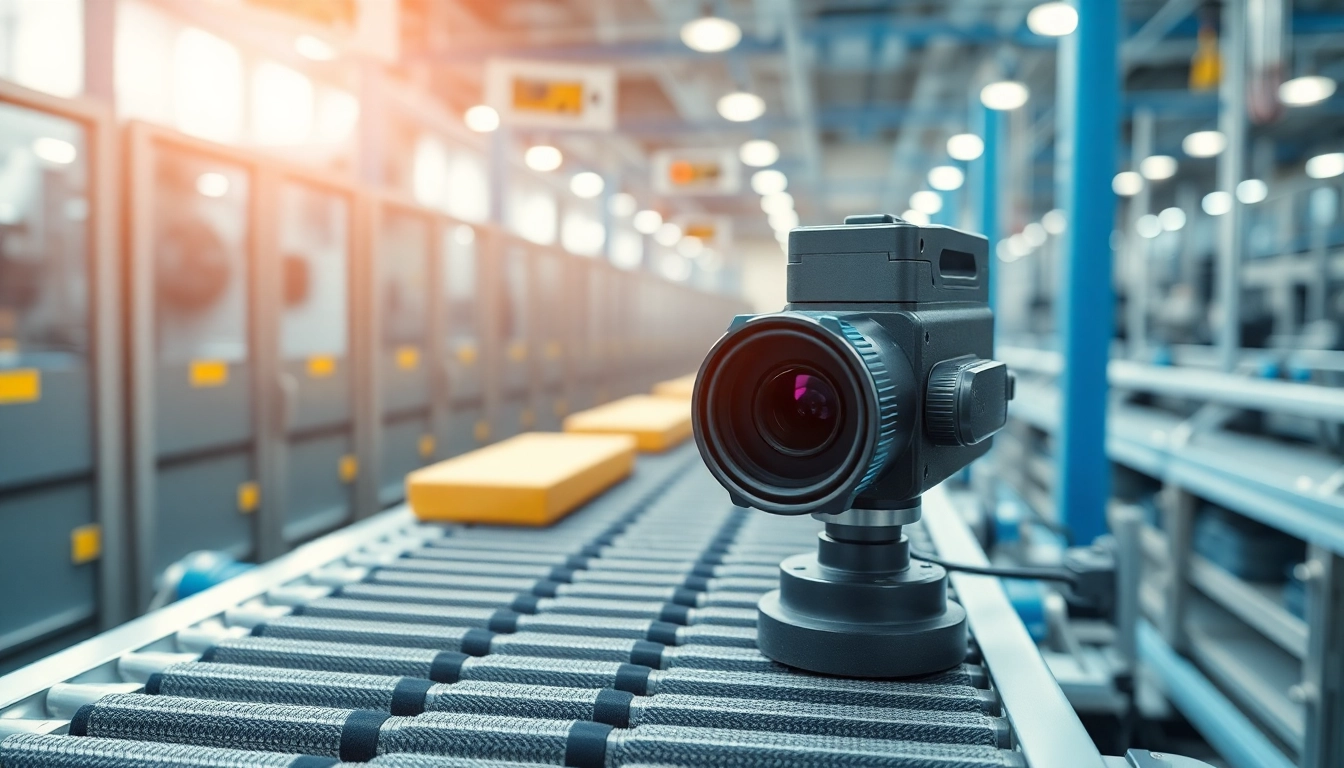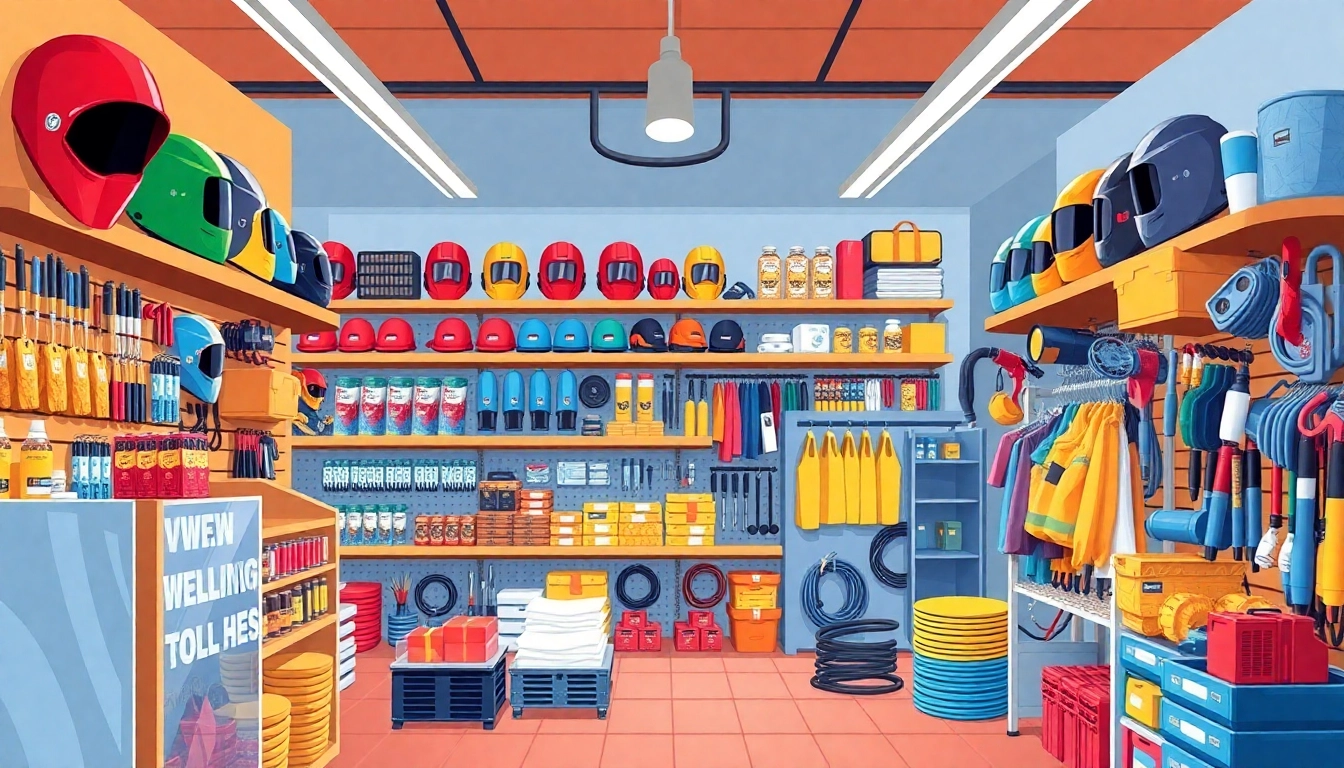Understanding the Importance of Filling Machines
Filling machines are integral to the packaging process in various industries, serving as the backbone for efficiency and accuracy. The demand for reliable Filling Machine Manufacturers has surged as businesses seek to streamline production lines and maintain quality standards. These machines not only enhance productivity but also contribute significantly to cost-effectiveness and product safety.
What Are Filling Machines?
Filling machines are specialized equipment designed to dispense a predefined amount of liquid, granules, or powder into a container, such as bottles, pouches, or cans. They can operate on an automatic, semi-automatic, or manual basis, depending on the scale of production and the specific requirements of the industry. Filling machines come in various types to accommodate different product characteristics, including:
- Volumetric Filling Machines: Measure the volume of the product and dispense it. Suitable for liquids with consistent viscosity.
- Gravimetric Filling Machines: Utilize weight measurements to ensure accuracy, ideal for precise quantities.
- Piston Filling Machines: Use pistons to transfer liquid from a reservoir into a container, widely used for thicker fluids.
- Auger Filling Machines: Dispense powdered or granular products, commonly seen in the food and pharmaceutical industries.
Applications Across Industries
The versatility of filling machines allows their usage across a multitude of sectors, including:
- Food and Beverage: Filling machines are critical in bottling beverages, packaging sauces, and handling bulk ingredients.
- Pharmaceuticals: Used for filling vials and syringes with liquid medications or powders, ensuring sterility and precision.
- Cosmetics: Ideal for filling creams, lotions, and oils with attention to hygiene and precision.
- Chemicals: Assist in packaging industrial chemicals and cleaning products, focusing on safety and accuracy.
Key Benefits of Using Filling Equipment
Investing in filling machines offers numerous advantages that can positively impact production and business operations:
- Increased Efficiency: Automating the filling process reduces the time spent on manual tasks.
- Consistency and Quality Control: Machines provide uniformity in filling, helping maintain product quality standards.
- Reduced Labor Costs: Automation minimizes the need for extensive labor, leading to significant savings.
- Scalability: Filling machines allow businesses to adjust production rates, accommodating increased market demand.
Top Filling Machine Manufacturers
The market for filling machines is competitive, with several manufacturers known for their quality and innovation. Companies often lead with different technologies, application areas, and customer service levels.
Leading Brands in the Market
Here are some of the leading filling machine manufacturers recognized for their expertise and product reliability:
- Accutek Packaging Equipment Company: Offers a diverse range of filling machines tailored for various products, including liquids, pastes, and powders.
- Cozzoli Machine Company: Renowned for their liquid filling machines and comprehensive packaging solutions.
- Volumetric Technologies: Focuses on high-performance filling systems that cater to multiple industrial needs.
- E-PAK Machinery: Provides an extensive selection of liquid filling and bottling solutions, emphasizing user-friendly designs.
- Fogg Filler: Specializes in filling, rinsing, and capping equipment for free-flowing liquids.
Comparative Analysis of Features
When evaluating filling machines from various manufacturers, it’s crucial to consider several key features, such as:
- Filling Speed: Varies per machine, with some designed for high-volume production.
- Accuracy: Measurement precision is vital for maintaining product quality.
- Ease of Operation: User-friendly interfaces enhance productivity and training.
- Maintenance Requirements: Some machines may demand more regular maintenance than others.
Expert Recommendations for Buyers
Before making a purchase, potential buyers should consider the following recommendations:
- Assess production needs: Understand the specific requirements of your production line before selecting a machine.
- Evaluate supplier reputation: Look for reviews and testimonials to gauge reliability and customer service.
- Test the machine: Whenever possible, observe a demonstration or trial run to examine performance.
- Consider after-sale support: Ensure that the manufacturer offers adequate technical support and service options.
Choosing the Right Filling Machine
Selecting the right filling machine can significantly influence the efficiency of your production line. Several factors come into play, and careful consideration is essential.
Factors to Consider During Selection
When evaluating filling machines, consider the following factors:
- Type of Product: Understand the nature of the product being filled, as this can dictate the type of filling system required.
- Container Type: Different containers necessitate different filling techniques and machinery.
- Production Volume: High-volume operations may require fully automatic machines for efficiency.
- Budget Constraints: Factor in not just purchase price, but ongoing maintenance and operation costs.
Customization Options Available
Many manufacturers offer customization options to cater to specific production needs, such as:
- Specialized filling nozzles for different product viscosities.
- Adjustable conveyor systems to accommodate various container sizes.
- Integration with other packaging machinery for a cohesive production line.
Common Mistakes to Avoid
Choosing a filling machine can be complex. Avoid these common pitfalls:
- Neglecting to assess production capabilities: Ensure that the machine’s production speed meets your needs.
- Overlooking maintenance: Consider the maintenance needs and availability of parts for long-term service.
- Ignoring future scalability: Choose machines that can adapt to potential increases in production or changes in product lines.
Maintenance and Care for Filling Machines
To prolong the lifespan and efficiency of filling machines, regular maintenance is essential. Establishing a maintenance schedule can help prevent costly breakdowns.
Best Practices for Longevity
Adhering to proper maintenance protocols can considerably extend the life of filling machines:
- Regular cleaning: Keep machines clean to prevent product residue buildup, which can lead to contamination.
- Routine inspections: Schedule consistent checks to identify any wear and tear before they lead to malfunction.
- Tightening loose parts: Regularly check and tighten bolts and screws to avoid operational issues.
When to Seek Professional Help
While routine maintenance can often be done in-house, certain situations warrant professional intervention:
- Persistent mechanical issues that cannot be resolved by standard measures.
- Software malfunctions in automated systems that require technical expertise.
- At regular intervals for in-depth assessments to evaluate overall machine health.
Maintaining Safety Standards
Safety is paramount in any manufacturing setting. Adhere to these guidelines for equipment safety:
- Ensure all operators are trained on safe machine operation techniques.
- Implement safety guards and emergency stop mechanisms on all machines.
- Conduct regular safety audits to ensure compliance with industry regulations.
The Future of Filling Machine Technology
As technologies evolve, so too does the capabilities and functionalities of filling machines. Staying ahead of trends is vital for manufacturers looking to optimize their operations.
Emerging Trends to Watch
Monitor these emerging trends that are shaping the future of filling machines:
- Smart Technology: The integration of IoT devices for real-time monitoring and predictive maintenance.
- Enhanced Automation: Fully automated systems that reduce labor and increase efficiency while maintaining high output.
- Modular Machinery: Filling machines designed to be easily reconfigured or upgraded for different products.
Impact of Automation on Filling Processes
The rise of automation brings numerous benefits, including:
- Higher productivity rates due to reduced human error and faster operations.
- Improved safety through enhanced control systems that mitigate risks associated with manual operations.
- Cost savings through operational efficiencies and reduced labor costs.
Sustainability in Filling Machinery
As environmental awareness grows, sustainability in filling machines becomes crucial. Manufacturers are increasingly focused on:
- Reducing waste through more precise filling systems that minimize overfill losses.
- Incorporating recyclable materials in machine construction to support circular economy initiatives.
- Using energy-efficient technologies that reduce overall consumption during operation.



